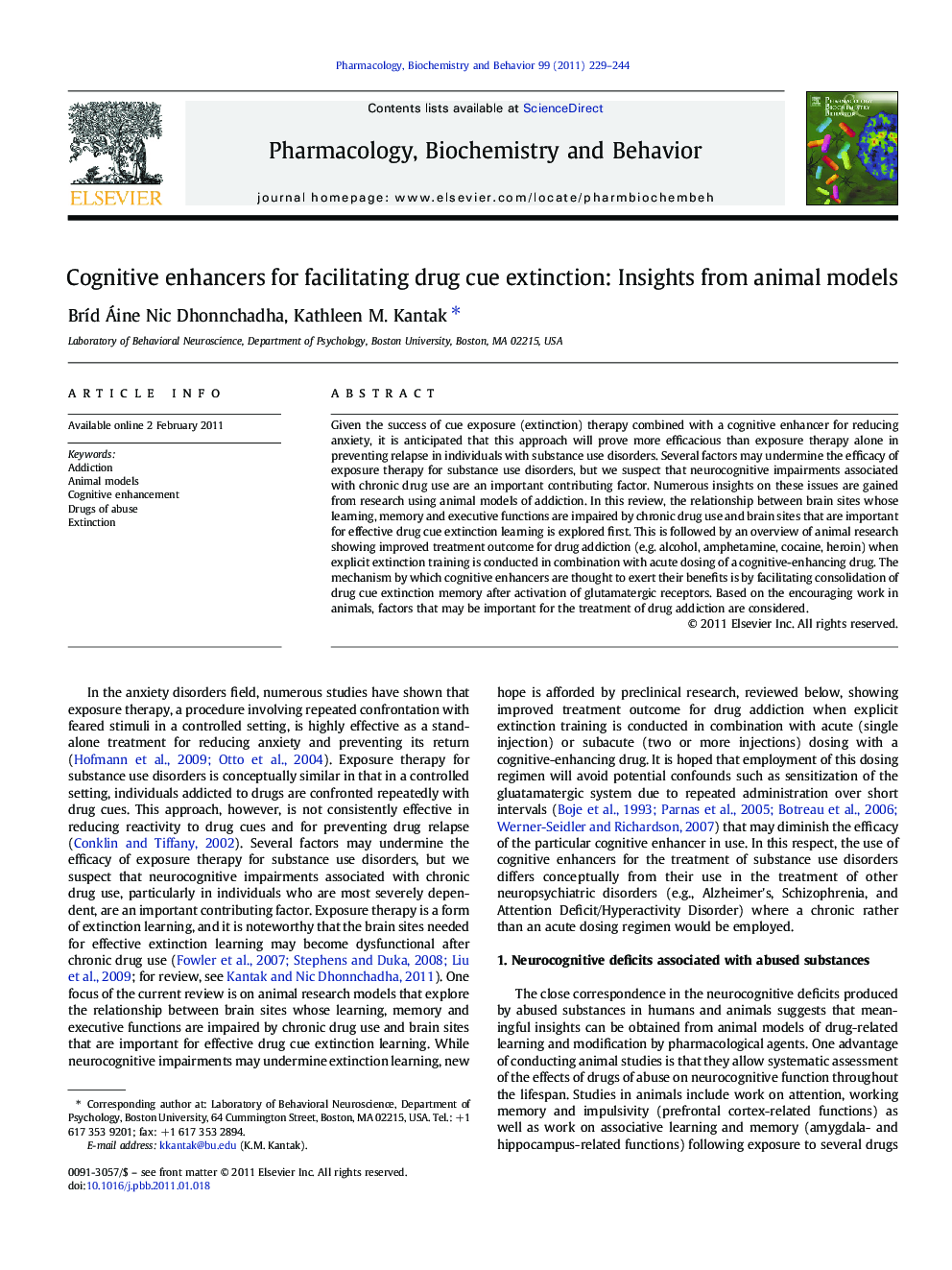| کد مقاله | کد نشریه | سال انتشار | مقاله انگلیسی | نسخه تمام متن |
|---|---|---|---|---|
| 2013214 | 1067100 | 2011 | 16 صفحه PDF | دانلود رایگان |

Given the success of cue exposure (extinction) therapy combined with a cognitive enhancer for reducing anxiety, it is anticipated that this approach will prove more efficacious than exposure therapy alone in preventing relapse in individuals with substance use disorders. Several factors may undermine the efficacy of exposure therapy for substance use disorders, but we suspect that neurocognitive impairments associated with chronic drug use are an important contributing factor. Numerous insights on these issues are gained from research using animal models of addiction. In this review, the relationship between brain sites whose learning, memory and executive functions are impaired by chronic drug use and brain sites that are important for effective drug cue extinction learning is explored first. This is followed by an overview of animal research showing improved treatment outcome for drug addiction (e.g. alcohol, amphetamine, cocaine, heroin) when explicit extinction training is conducted in combination with acute dosing of a cognitive-enhancing drug. The mechanism by which cognitive enhancers are thought to exert their benefits is by facilitating consolidation of drug cue extinction memory after activation of glutamatergic receptors. Based on the encouraging work in animals, factors that may be important for the treatment of drug addiction are considered.
Research Highlights
► Cognitive deficits in drug addicts may undermine the efficacy of exposure therapy.
► Drugs of abuse impact the neural substrates of extinction learning.
► Cognitive-enhancers affecting glutamate transmission facilitate extinction learning.
► Glycine transport inhibition is a promising lead for facilitating exposure therapy.
► Animal studies provide a blueprint for overcoming translational challenges in addicts.
Journal: Pharmacology Biochemistry and Behavior - Volume 99, Issue 2, August 2011, Pages 229–244